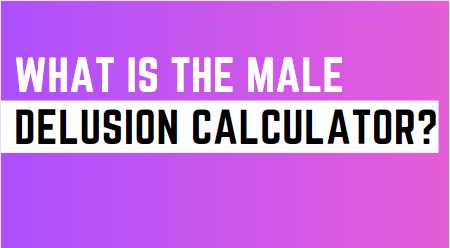What is a Delusional Man?
Gain a better understanding of delusional man, a mental health condition characterized by false beliefs that are held with conviction despite evidence to the contrary. Learn about the different types, causes, and treatment options available for individuals struggling with this condition.
What is a Delusional Man?
Delusional man, also known as delusional disorder, is a type of mental health condition that is characterized by false beliefs that are held with conviction despite evidence to the contrary. These beliefs can take many forms, and they can be categorized into different types based on their content.
Individuals with delusional men may have a hard time distinguishing between what is real and what is not. They may become preoccupied with their delusions, and these beliefs can interfere with their daily life.
Types of Delusional Man
Delusional man can be categorized into several different types based on their content. The five main types of delusional man are:
- Paranoid Delusions: Paranoid delusions involve false beliefs that others are out to harm or deceive the individual. This type of delusion often involves a sense of persecution, and the individual may believe that they are being watched, followed, or targeted by others.
- Grandiose Delusions: Grandiose delusions involve false beliefs about one’s own importance or abilities. This type of delusion often includes a sense of superiority, and the individual may believe that they have special powers, talents, or knowledge that sets them apart from others.
- Somatic Delusions: Somatic delusions involve false beliefs about one’s own body or health. This type of delusion often involves a belief that one is sick, infected, or infested with parasites or other foreign substances.
- Erotomanic Delusions: Erotomanic delusions involve false beliefs that another person, often someone of higher social status, is in love with the individual. This type of delusion often includes a sense of obsession or fixation on the imagined relationship.
- Nihilistic Delusions: Nihilistic delusions involve false beliefs about the nonexistence or meaninglessness of the world. This type of delusion often involves a sense of despair or hopelessness, and the individual may believe that the world or themselves does not exist.
Causes of Delusional Man
The causes of delusional man are not entirely clear, but there are several factors that may contribute to the development of this condition. These factors include:
- Genetics: There may be a genetic component to delusional man, as some studies have shown that certain genes may increase the risk of developing this condition.
- Brain Chemistry: Imbalances in brain chemicals, such as dopamine or serotonin, may play a role in the development of a delusional man. These imbalances may be caused by genetics, trauma, or substance abuse.
- Trauma: Traumatic events, such as physical or emotional abuse, may increase the risk of developing a delusional man. Trauma can cause changes in the brain that may make an individual more susceptible to developing delusions.
- Substance Abuse: Substance abuse, such as the use of drugs or alcohol, may increase the risk of developing a delusional man. Substance abuse can cause changes in the brain that may contribute to the development of delusions.
Treatment of Delusional Man
Treatment for delusional man can be challenging, as individuals with this condition often do not believe that they have a problem. However, there are several approaches that may be effective in managing delusions.
- Medication: Antipsychotic medication can be effective in reducing the severity and frequency of delusions. These medications work by blocking dopamine receptors in the brain, whichcan reduce the intensity of delusions.
- Psychotherapy: Psychotherapy, such as cognitive-behavioral therapy, can help individuals with delusional man learn coping skills and strategies to manage their symptoms. It can also help individuals to identify and challenge their delusions, which can lead to a reduction in symptoms over time.
- Hospitalization: In severe cases, hospitalization may be necessary to provide intensive treatment and support. Hospitalization can be helpful for individuals who are experiencing severe symptoms, or who are at risk of harming themselves or others.
- Self-Care: Self-care, such as getting enough rest, eating a healthy diet, and engaging in regular exercise, can help individuals with delusional man manage their symptoms and improve their overall well-being.
It is important to note that a delusional man is different from other mental health conditions, such as schizophrenia. While a delusional man can be a symptom of schizophrenia, it is also possible for an individual to have a delusional man without having schizophrenia.
Conclusion
In conclusion, a delusional man is a type of mental health condition characterized by false beliefs that are held with conviction despite evidence to the contrary. These beliefs can take many forms, and they can be categorized into different types based on their content. The causes of delusional man are not entirely clear, but genetics, brain chemistry, trauma, and substance abuse may all play a role in their development.
Treatment for delusional man can be challenging, but there are several approaches that may be effective in managing symptoms and improving overall well-being. If you or someone you know is experiencing delusions, it is important to seek help from a mental health professional.






